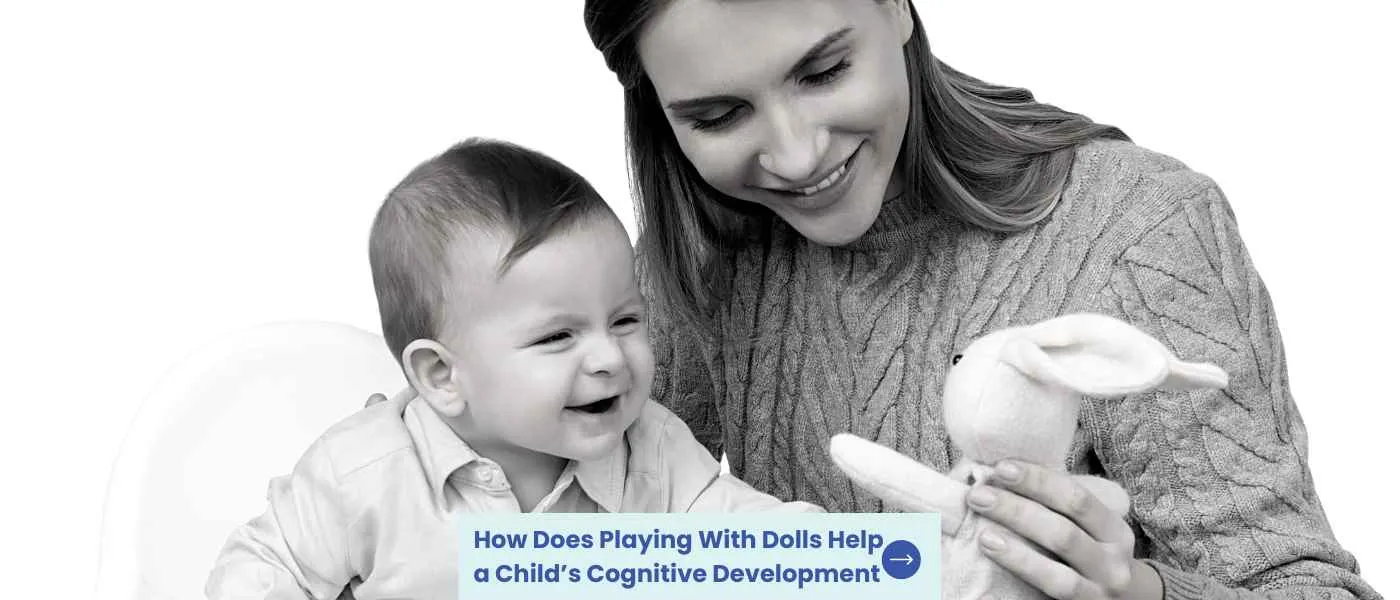Contemplating the significance of doll play in early childhood and wondering about its manifold benefits? You’re not alone. Many educators, caregivers, and parents intuitively sense the value dolls bring to playtime, but might not fully recognize the depth of developmental advantages they offer.
Fortunately, years of research and observations have underscored the pivotal role dolls play in a child’s holistic development, transcending mere entertainment.
I’ve articulated a comprehensive guide that delves into the myriad benefits of doll play during early childhood. This guide will explore cognitive, emotional, social, and physical dimensions, among others.
Let’s unravel the intricate tapestry of imagination, empathy, and skill-building that doll play weaves, shedding light on its profound impact on shaping well-rounded, empathetic individuals.
Key Takeaways
| Benefit | Description |
|---|---|
| Emotional Development | Doll play allows children to express and process their emotions, helping them understand feelings like empathy, love, and care. |
| Social Skills | Role-playing with dolls teaches interaction, communication, and understanding of social cues and roles. |
| Cognitive Development | Imagining scenarios and interactions for dolls enhances thinking, reasoning, and problem-solving abilities. |
| Language Skills | Narrating the dolls’ actions, conversations, or stories can significantly improve vocabulary and language comprehension. |
| Motor Skills | Dressing, feeding, or moving dolls around refines fine motor skills. |
| Responsibility | Taking care of a doll, such as feeding or putting it to sleep, introduces the concept of responsibility. |
| Empathy and Compassion | Caring for a doll fosters a sense of empathy and compassion, essential traits for social interactions. |
| Understanding of the World | Role-playing various scenarios, like doctor visits or school days, helps children grasp different aspects of the world around them. |
| Imagination and Creativity | Creating diverse stories or scenarios for dolls enhances imaginative thinking. |
| Routine and Structure | Regular activities, like putting the doll to bed or feeding it, can teach children about routines and the importance of structure. |
| Understanding Family Dynamics | Playing with family sets of dolls can help children understand family roles and relationships. |
Why Doll Play is Beneficial in Early Childhood
Doll play is an important part of a child’s development, as it offers numerous benefits for their social, cognitive, and emotional growth. Through doll play, children can use their imagination to create scenarios, explore different roles, and learn about relationships.
Here are some of the ways that doll play can benefit children in early childhood:
- Communication and Language Skills: Playing with dolls can help children develop their communication and language skills. By talking to their dolls, children can learn new words, improve their sentence structure and grammar, and practice their social skills.
- Social and Emotional Development: Doll play can help children develop their social and emotional processing skills, such as empathy and understanding of others’ emotions. By pretending to be a caregiver to their dolls, children can learn about nurturing and caring for others.
- Cognitive Development: Doll play can also benefit children’s cognitive development by stimulating their imagination and creativity. By creating their own scenarios, children can practice problem-solving skills, critical thinking, and decision-making.
Parents and caregivers can encourage and support doll play by providing a variety of dolls and accessories, joining in the play, and using the playtime to teach important life skills. By understanding the benefits of doll play, you can help your child thrive in their early years.
Joint or solo play with dolls can provide of opportunities for rehearsing social-cognitive skills in children. Doll play encourages social skills, emotional intelligence, and language development.
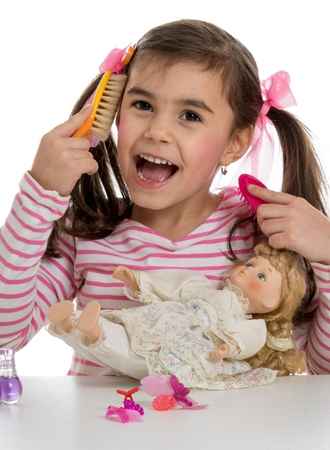
Development of Social Emotional Skills
Engaging with dolls can foster crucial social competencies in children, setting a foundation for lifelong interpersonal success. Here are a couple of significant ways through which doll play enhances a child’s social development:
Role-playing and Empathy
When kids immerse themselves in playing with dolls, they simulate various roles and situations, aiding them in grasping and empathizing with others. By stepping into another’s shoes, they gain insights into diverse thoughts and emotions.
This nurtures empathy, a pivotal social skill that equips them to relate harmoniously with peers and navigate social interactions adeptly. Doll play, therefore, enhances children’s ability to see from varied perspectives and respect differing viewpoints.
Communication and Language Skills
Doll play is also a great way for children to develop their language and communication skills.
When kids interact with dolls, they frequently converse with them, this is the foundation for sustaining friendships.
This interaction can enhance their vocabulary, and refine their grammatical understanding and sentence construction.
Doll play can also help children practice social communication skills like taking turns, asking questions, and kids express themselves clearly.
Whether playing alone or with others, doll play provides an opportunity for children to practice their internal state language, which is the language they use to describe their own thoughts and feelings.
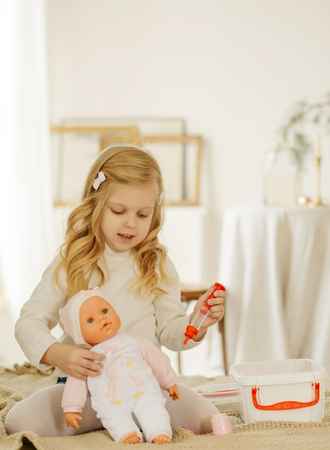
Cognitive Development
Playing with dolls can have a positive impact on children’s cognitive development, including their problem-solving, memory, and creativity skills. Here are two key ways that doll play can benefit children’s cognitive development:
Problem Solving and Creativity
When kids engage with dolls, it demands their imaginative and analytical abilities. They might craft fictional situations or seek solutions related to their doll interactions. Such imaginative activities foster their inventive thought processes, essential for tackling challenges and fostering innovation.
Doll play can also help children develop their executive functioning, including their prefrontal cortex and orbitofrontal cortex, which are important for cognitive skills such as attention, planning, and problem-solving.
Memory and Imagination
Engaging with dolls can aid kids in enhancing their memory and imaginative abilities. As they immerse themselves in doll-related activities, they might recall specifics about the dolls’ traits, connections, and past events. Such interactions bolster their active memory, crucial for scholastic achievement.
Moreover, doll interactions nurture children’s imaginative prowess, vital for fostering creativity and innovative thinking. Such play can also refine a child’s ability to delve into fantasy, a key component for cognitive abilities like retention, focus, and educational competencies.

Emotional Development
Engaging with dolls can be instrumental in fostering a child’s emotional growth, encompassing aspects like articulating feelings, managing them, and grasping emotional nuances. Here are a couple of avenues through which doll interactions can positively influence a child’s emotional well-being:
Self-Expression and Regulation
As kids immerse themselves in doll activities, they often portray varied feelings and situations, aiding them in understanding how to balance their emotions.
Doll play offers kids a secure and delightful platform to channel their feelings and navigate difficult circumstances with creativity and imagination. Such interactions bolster their ability to self-regulate emotionally, a crucial skill for controlling feelings and actions.
Understanding and Coping with Emotions
Engaging with dolls can guide kids in recognizing and handling their emotions. While playing, kids might encounter scenarios that evoke emotions like sadness, joy, or frustration.
Such experiences enhance their emotional intelligence, which encompasses comprehending and managing personal emotions, as well as empathizing with others’ feelings.
Furthermore, doll interactions offer a delightful and secure environment for children to navigate and understand challenging emotions and scenarios.
Emotional Intelligence
When kids delve into imaginative play with dolls, they not only hone their skills in articulating emotions but also become adept at discerning others’ feelings.
They develop a sense of empathy, understanding the nuances of another’s emotional state or circumstances, a key component of emotional intelligence (EI). Research indicates a strong correlation between EI and future achievements, making it crucial to nurture these attributes in early childhood through means like doll play.
Moreover, even when kids play alone, this make-believe world serves as a catalyst for social and emotional reflection, laying a foundation for robust social-emotional abilities.

Language Development
Dolls provides children with an opportunity to practice their speaking and listening skills, which are essential components of language development.
Through pretend play which involves executive function skills such as those that involve doll play, children playfully distort reality by talking about what they are doing.
This encourages them to use more descriptive language when describing their actions or experiences, thus improving their overall communication abilities over time and help their emotional processing skills.
FAQs on benefits of doll play for toddlers
What do children learn through playing with dolls?
Dolls can help children develop important life skills and form lifelong habits such as empathy, communication, problem-solving and creativity. Doll play allows children to explore different roles and relationships in a safe environment, which helps them better understand the world around them.
Through imaginative kids play, they learn how to interact with others while also developing their own identity. Dolls provide an opportunity for children to express themselves creatively and use their imagination in a fun way that encourages learning.
Dolls teach kids about caring for others by nurturing the doll or taking care of it like a real baby.
What are the benefits of playing with baby dolls?
When a child plays with dolls in the early childhood years it encourages nurturing and caring behaviors, as well as helping them develop empathy for others. Dolls also provide an opportunity for imaginative play, allowing kids to explore different roles and situations in a safe environment.
Dolls helps children practice communication skills such as taking turns and expressing feelings through words or gestures. Finally, playing with dolls can help foster creativity by inspiring creative stories or activities that use the doll as the main character.
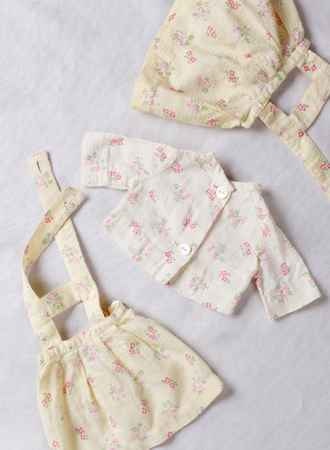
Is playing with dolls a fine motor skill?
Creative and open play with dolls can help develop fine motor skills. Fine motor skills involve small muscle movements such as those used to manipulate objects and tools. Playing with dolls requires the use of these muscles in order to move the doll’s arms, legs, and other body parts.
Dressing and undressing dolls also involves manipulating smaller items like buttons or zippers which further develops fine motor skills. Therefore, it is safe to say that playing with dolls can indeed be considered a fine motor skill.
What is young children’s pretend play?
Young children’s active and natural play, also known as imaginative or make-believe play, is a type of play where children use their imagination to create and act out scenarios that are not based in reality. During pretend play, children often take on roles and behave as if they are someone or something else, using objects or toys to represent real-life or imaginary items. It is better than tablet games.
This type of play is essential for children’s cognitive, social, emotional, and language development. It helps them develop problem-solving skills, creativity, and abstract thinking, as they create and navigate their imaginary worlds. Pretend play also helps children understand social roles and rules, as they negotiate and act out different scenarios with other children.
Pretend play provides children with opportunities to express their emotions, fears, and desires in a safe and controlled environment. They can explore different feelings and situations, try out different behaviors, and practice coping strategies. This can help them develop emotional regulation and empathy for others.
Young children’s tablet play usually begins around 2 years old and continues until around 7-8 years old. During this time, children engage in different types of pretend play, such as object substitution (using one object to represent another), socio-dramatic play (acting out social roles and scenarios), and fantasy play (creating imaginary worlds and creatures).
Whether or not doll play is something your child is interested in, parents and caregivers can support children’s pretend play by providing open-ended toys and materials, such as blocks, dolls, and dress-up clothes, and by joining in their play and following their lead.
Pretend or symbolic play help children create imaginary worlds and engage either through joint and solo play.
How does doll play increase activity in the posterior superior temporal sulcus in children?
Doll play has been shown to have an impact on brain activity in children, specifically in the posterior superior temporal sulcus (pSTS). This region of the brain is located in the temporal lobe and is responsible for processing social information, such as facial expressions and body language. Here is a detailed explanation of how doll play increases activity in the pSTS in children:
Social interaction
Doll play often involves social interaction, where children engage in role-play scenarios and create their own stories. This social interaction stimulates the pSTS, as it is responsible for processing social cues and interpreting them. The more children engage in social interaction during doll play, the more their pSTS activity is likely to increase.
Empathy and perspective-taking
Doll play also requires empathy and perspective-taking, as children have to imagine themselves in the doll’s position and understand its emotions and thoughts. This process engages the pSTS, as it is responsible for processing emotional information and taking another person’s perspective. When children engage in empathetic and perspective-taking play, their pSTS activity is likely to increase.
Object manipulation
Doll play involves manipulating and moving the doll, which engages the brain’s motor areas. The pSTS also receives input from these areas, and so the more children manipulate the doll, the more their pSTS activity is likely to increase.
Solo doll play
As children play with dolls, they engage in imaginative play, where they use their imagination to create stories and scenarios and generally good for children’s development. This engages multiple areas of the brain, including the pSTS, as it is responsible for processing social information in the context of imaginative play. It has also been observed in human developmental science that when children played alone, they have the same levels of pSTS as they did when playing with others.
During social play, there is greater activation in the right prefrontal cortex compared to individual play, indicating a potential interaction between the hemisphere and social context of play.
What are the benefits of playing with dolls for young children?
Playing with dolls offers a range of benefits for young children. It helps them develop their imagination, creativity, and cognitive skills. Doll play also promotes social and emotional development, language and communication skills, and cultural awareness.
Playing with dolls can help young children develop social and emotional skills. Children learn to express themselves and their feelings through play. Doll play encourages empathy, cooperation, and sharing. It helps children develop a sense of identity and self-esteem.
What skills can children learn through playing with dolls?
Playing with dolls can help children develop a range of skills. Doll play promotes problem-solving, creativity, and memory skills. It also helps children develop fine motor skills and coordination. Doll play encourages children to use their imagination and develop their language and communication skills.
Can playing with dolls help children develop empathy?
Yes, playing with dolls can help children develop empathy. Doll play allows children to explore different emotions and understand how others feel. Children learn to express themselves and their feelings through play. Doll play encourages empathy, cooperation, and sharing.
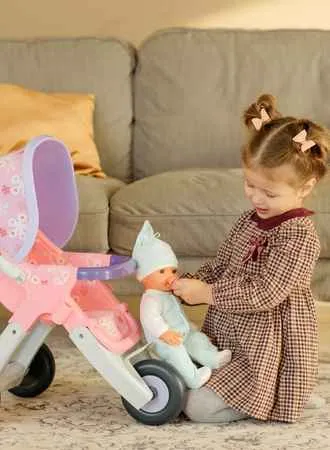
Why is imaginative play with dolls important for cognitive development?
Imaginative play with dolls is important for cognitive development because it promotes problem-solving, creativity, and memory skills. Children learn to use their imagination and develop critical thinking skills. Doll play encourages children to think independently and develop their cognitive abilities.
What role do dolls play in developing language skills?
Dolls play an important role in developing language skills. Children learn to express themselves and their feelings through play. Doll play encourages children to develop their language and communication skills. Children learn new words, phrases, and concepts through play. Doll play also helps children develop their listening and comprehension skills.

